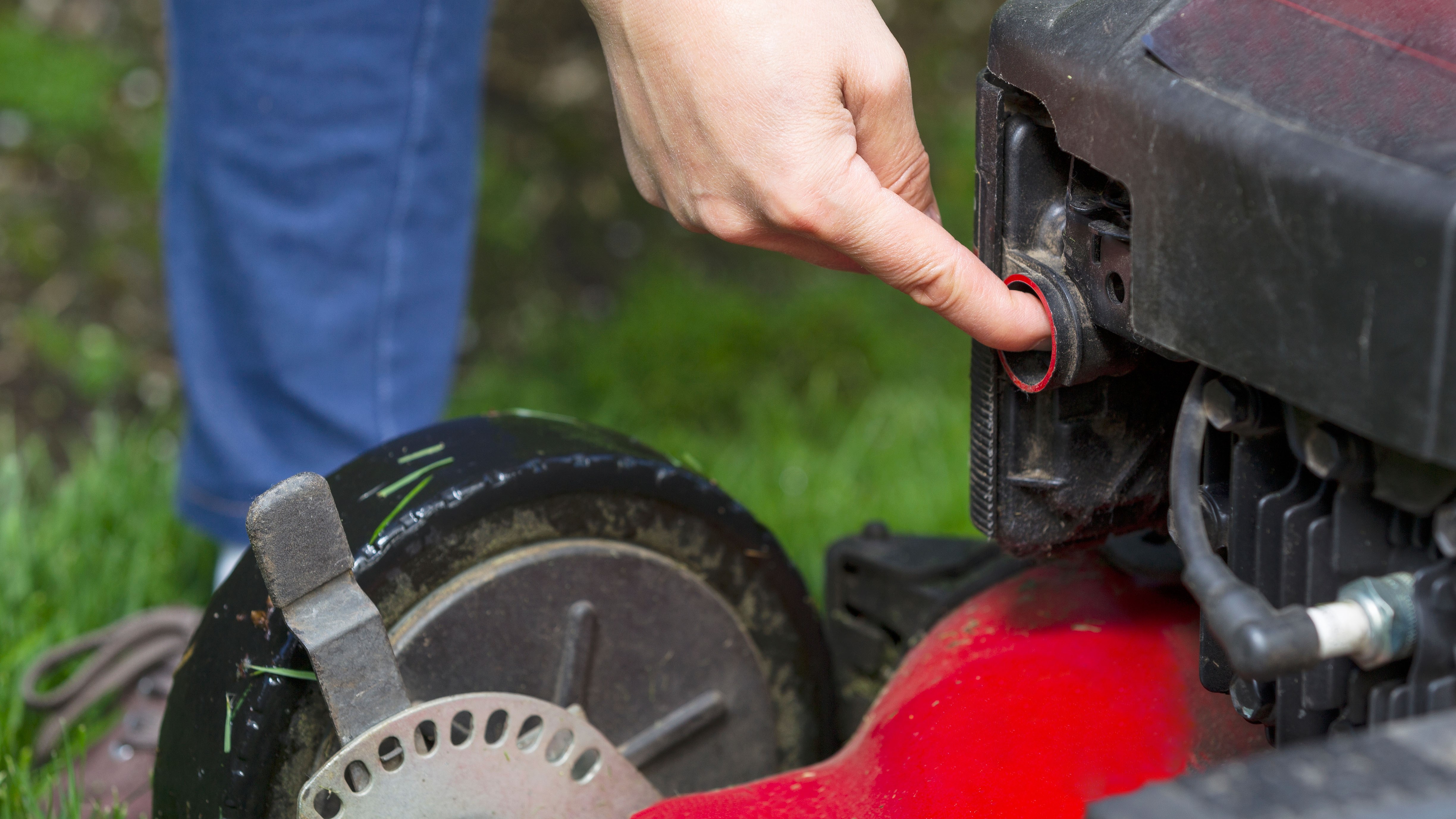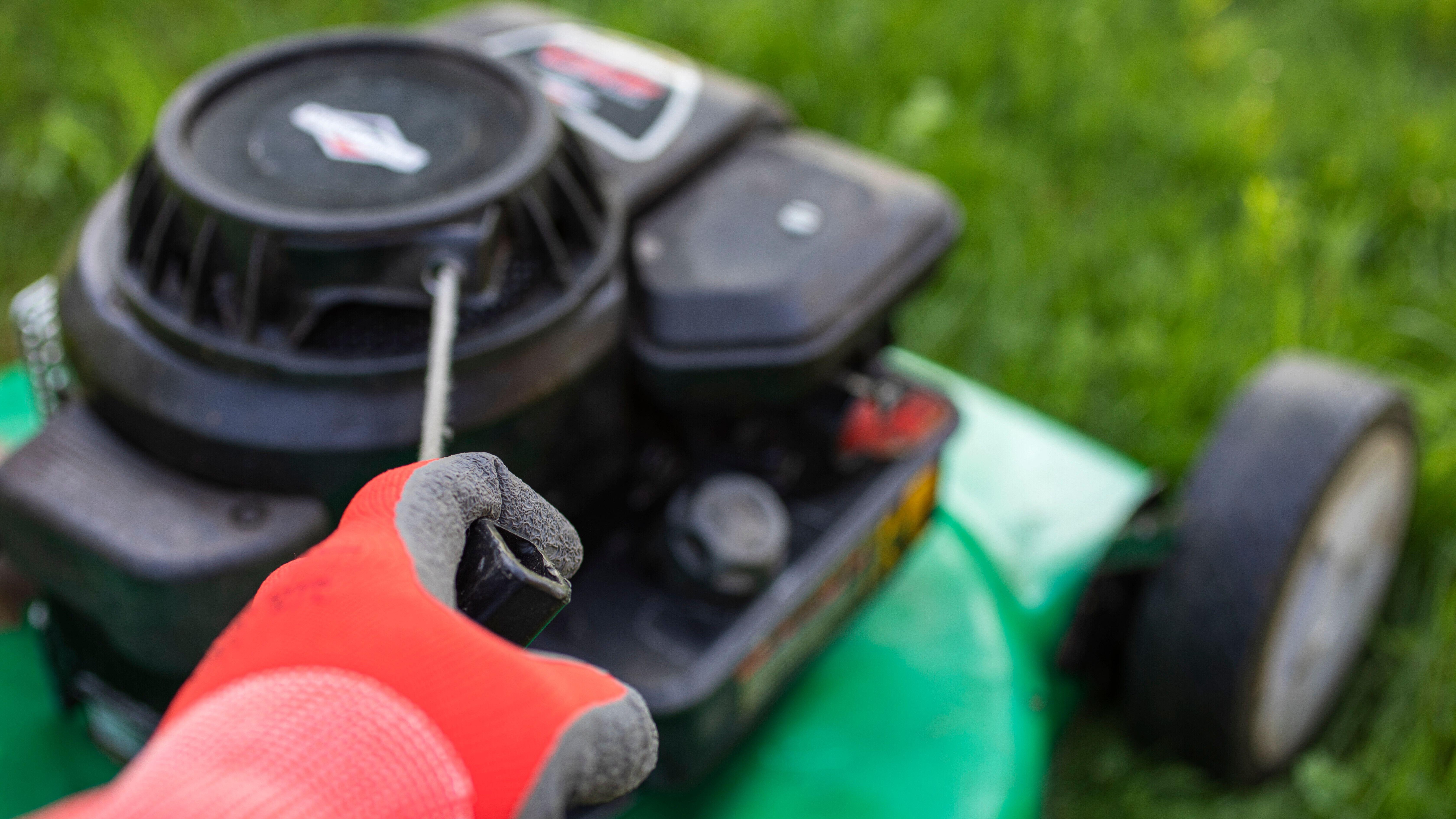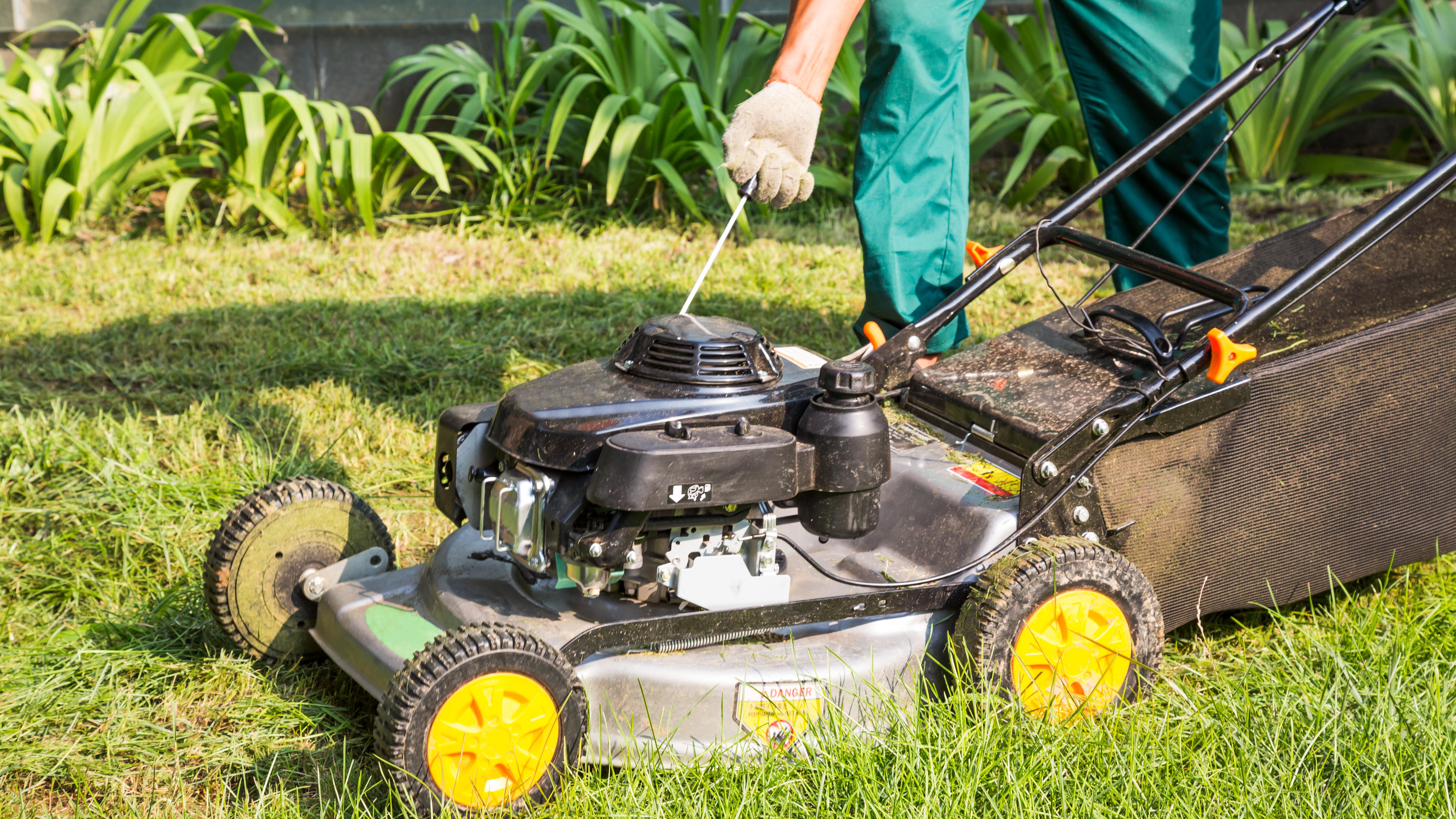We’ve all been there: you’re ready and raring to mow the lawn, but for some reason, your mower won’t start.
Even the best lawn mowers require the right lawn mower maintenance, and there are lots of potential explanations why a lawn mower isn’t starting. Some of these are easily fixable, whereas others might call for professional attention. Let’s go through some of the likeliest possible reasons why your lawn mower isn’t starting – and what you should do about each potential problem.
To help us along the way, we’ve included commentary from Peter Hunt, a senior product expert at leading lawn mower brand, Ryobi.

Peter Hunt is a group product manager at Techtronic Industries, the company behind leading tool brand Ryobi. Peter has worked in product design for over a decade, in which time he has worked on several market-leading mowers. Ryobi is known especially for its cordless home and yard tools, notably including its lithium-ion-battery-powered lawnmowers.
1. Minor issues with the power source
Have you tried turning it off and on again?
This simple piece of advice is familiar to anyone who has sought help with troubleshooting their computer before – and it applies equally to lawn mowers. Turn the mower off, disconnect the power source, wait a little while before you reconnect it, and then try mowing again.
Even if the mower doesn’t turn on properly at the second attempt, there’s a good chance that your problem relates to the power source.
“Before delving into complex issues, start with the basics and ensure your lawn mower's power source is intact,” says Ryobi’s Peter Hunt.
“For gas-powered mowers, confirm that your mower has sufficient fresh fuel. For battery-powered models, make sure the battery is correctly inserted into the tool and charged.”
2. Problems specific to gas lawn mowers
The best gas lawn mowers can offer excellent power and runtime, but unfortunately, they are susceptible to some specific problems. According to expert Peter Hunt, you should check for the following issues:
- Dirty spark plug: A fouled spark plug can hinder the engine’s ability to spark. Remove and clean it with a wire brush, or replace it if it’s worn or damaged.
- Clogged air filter: A clogged air filter restricts airflow to the engine. Clean it with soap and water, or replace it if damaged.
- Faulty ignition coil: The ignition coil is vital for creating the spark that ignites the fuel. If it's faulty, the engine won't start.
- Clogged fuel filter: Ensure the fuel filter is clean. A clogged filter can obstruct fuel flow to the engine.
- Faulty carburetor: The carburetor mixes air and fuel for the engine. A faulty carburetor can prevent the engine from starting.
“Gas lawn mower users should diligently maintain these parts, as per the instruction manual, to keep their lawn mower in good condition and ready to start when needed,” says Hunt.
3. Problems specific to battery-powered lawn mowers
Battery-powered lawn mowers tend to be much easier to maintain than their petrol-powered cousins are, with fewer internal components that require the owner’s ongoing attention.
However, it could be the case that your cordless mower’s battery is faulty, broken, or – most likely – depleted at the present time.
First, check your lithium-ion batteries’ charge state. Ways to do this vary depending on the manufacturer and model. Often, you can plug a battery into its charger and check the charger’s LED indicator. Alternatively, you might be able to use a charge status indicator on the battery itself, or plug the battery into another compatible tool.
Lithium-ion batteries gradually degrade over time and through repeated use, and many of them become unusable after about 300 - 500 charge cycles. If you’ve been using your lithium-ion batteries for several years, it might be time to buy some new ones.

4. Problems with technique and handling
Most of us will use our mower less than 20-30 times per year – so it’s only natural that we won’t have perfect technique.
According to Ryobi’s Peter Hunt, there are several potential mower handling issues that could prevent your lawn mower from starting, including:
- Walking too fast: Reduce your walking speed to alleviate stress on the lawnmower. This can prevent over-current and over-temperature issues.
- Cutting too much in one pass: Reduce the amount of grass that you’re cutting off in one pass, especially if your grass is long, dense or wet. Ryobi recommends only cutting a third of the height of your grass at one time. Not only will this be better for your lawnmower; it will also lead to a healthier lawn
- Improper lifting technique: If struggling to start, lift the front wheels slightly off the ground and gently lower them onto the grass.
- Full grass bag/collector: Regularly empty the grass bag to prevent unnecessary stress on the lawnmower.
“If your mower does not start, it is likely that you are over-stressing the tool and one or all the above solutions should help,” says Hunt.
5. The handle assembly is not properly locked into place
Some electric lawn mowers have a safety mechanism in the handle assembly, which won’t allow the mower to start if the handle is not in the correct position.
This problem is easily solved, by checking to ensure the handle mechanism is properly in place. Often, when a mower has this feature, there are small buttons on the sides of the mower which should slot into holes in the handles.
6. You’ve not pressed the safety button or trigger properly
Many lawn mowers are activated by pressing not one, but two, buttons. First, you press a safety lock button; second, you press and hold a trigger button while releasing the lock button. This feature makes mowers much safer to use – but it can also make these yard tools difficult to activate.
So, consult the instruction manual to review the exact procedure for starting your lawn mower. The safety lock button and the trigger should be used in precisely the manner and order indicated.

7. The mower requires professional maintenance
If you’ve worked through all of the other possibilities, then you may need to accept that your lawn mower is malfunctioning. In these cases, the mower will most likely require professional diagnosis and repair (if possible).
Your first move should be to contact the mower’s manufacturer. Even if you purchased the mower second-hand, the manufacturer might be able to give you some helpful advice.
If your lawn mower is currently under warranty, then your prospects are much better. Depending on the terms of the warranty, you might be able to get the mower fixed by its manufacturer, free of charge.
Know your mower!
By this point, we hope that you’ve figured out why your lawn mower isn’t starting and found a solution.
Before you go, we’d urge you to carefully read your mower’s instruction manual and note some of the guidance on usage, maintenance and storage. You can prevent a lot of potential problems with your mower by getting to know it a little better today.
“By addressing common start-up issues, whether you own a gas or battery-powered model, and adhering to recommended maintenance practices, you can extend the life of your mower and enjoy uninterrupted mowing sessions,” says Ryobi’s Peter Hunt.
“Remember, a little proactive care goes a long way in ensuring your lawn mower remains a reliable partner in lawn maintenance. So, equip yourself with the knowledge shared here, follow your mower's manual diligently, and revel in the satisfaction of a seamlessly running machine that keeps your lawn looking its best season after season. Happy mowing!”

